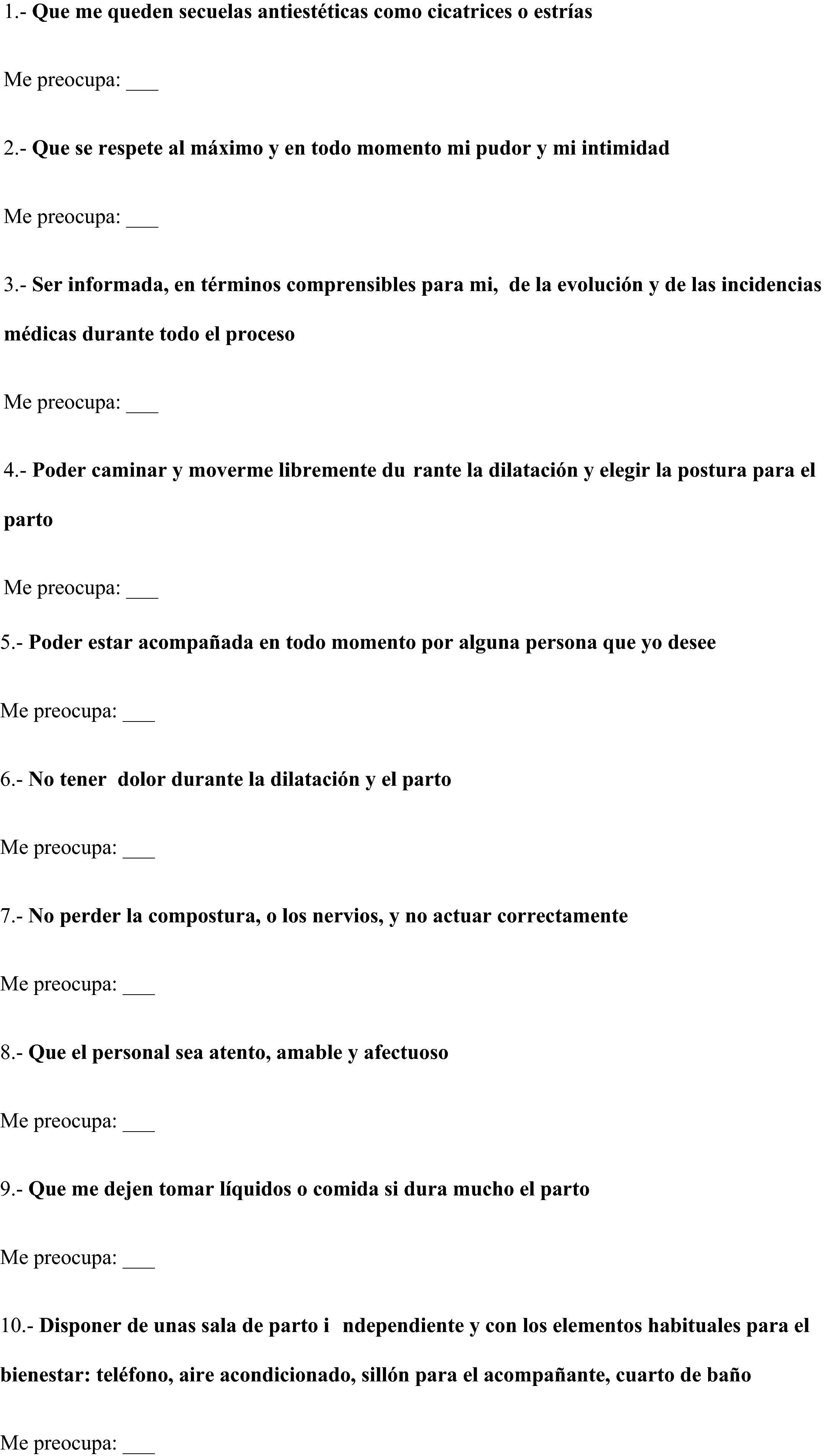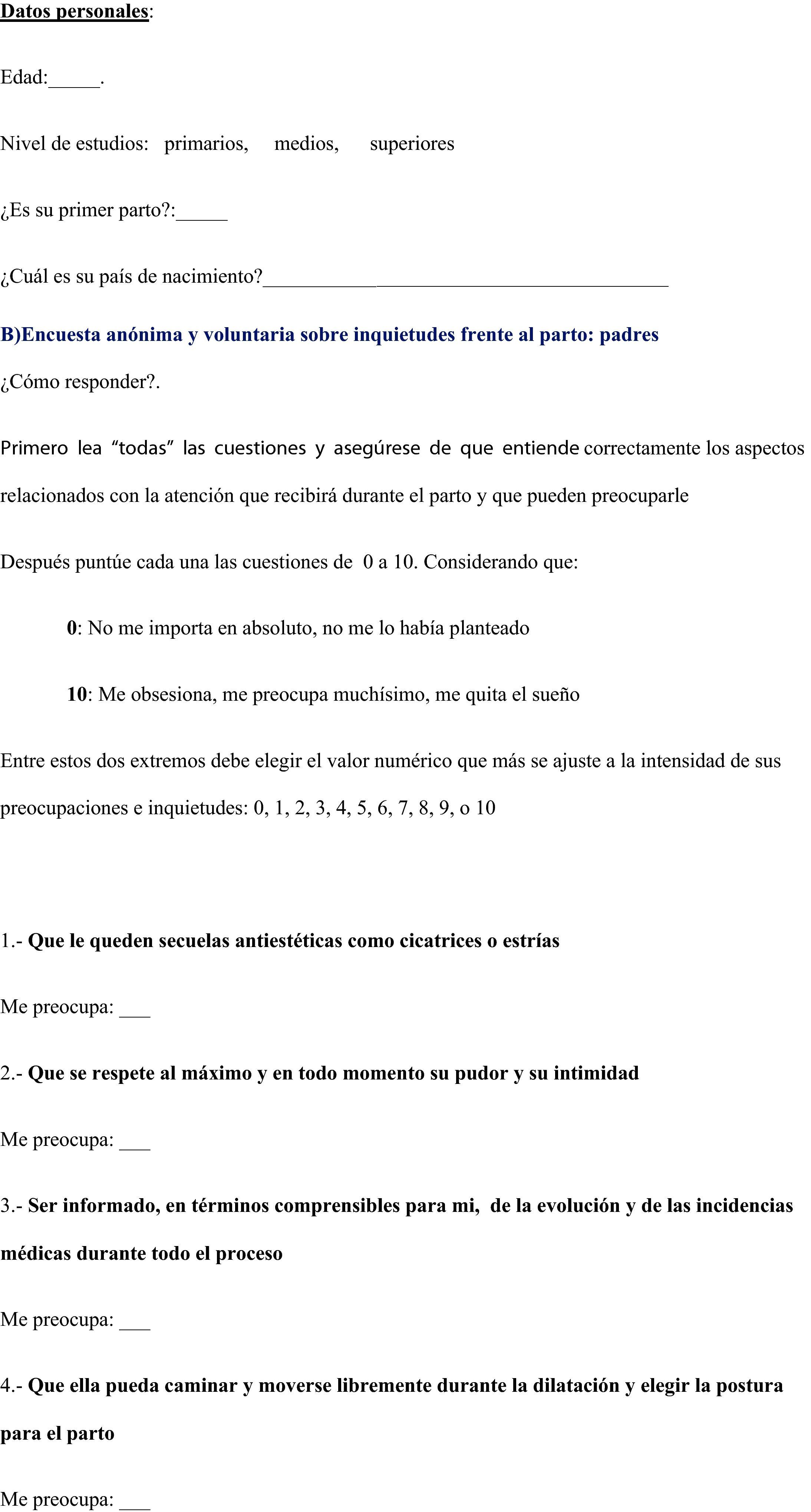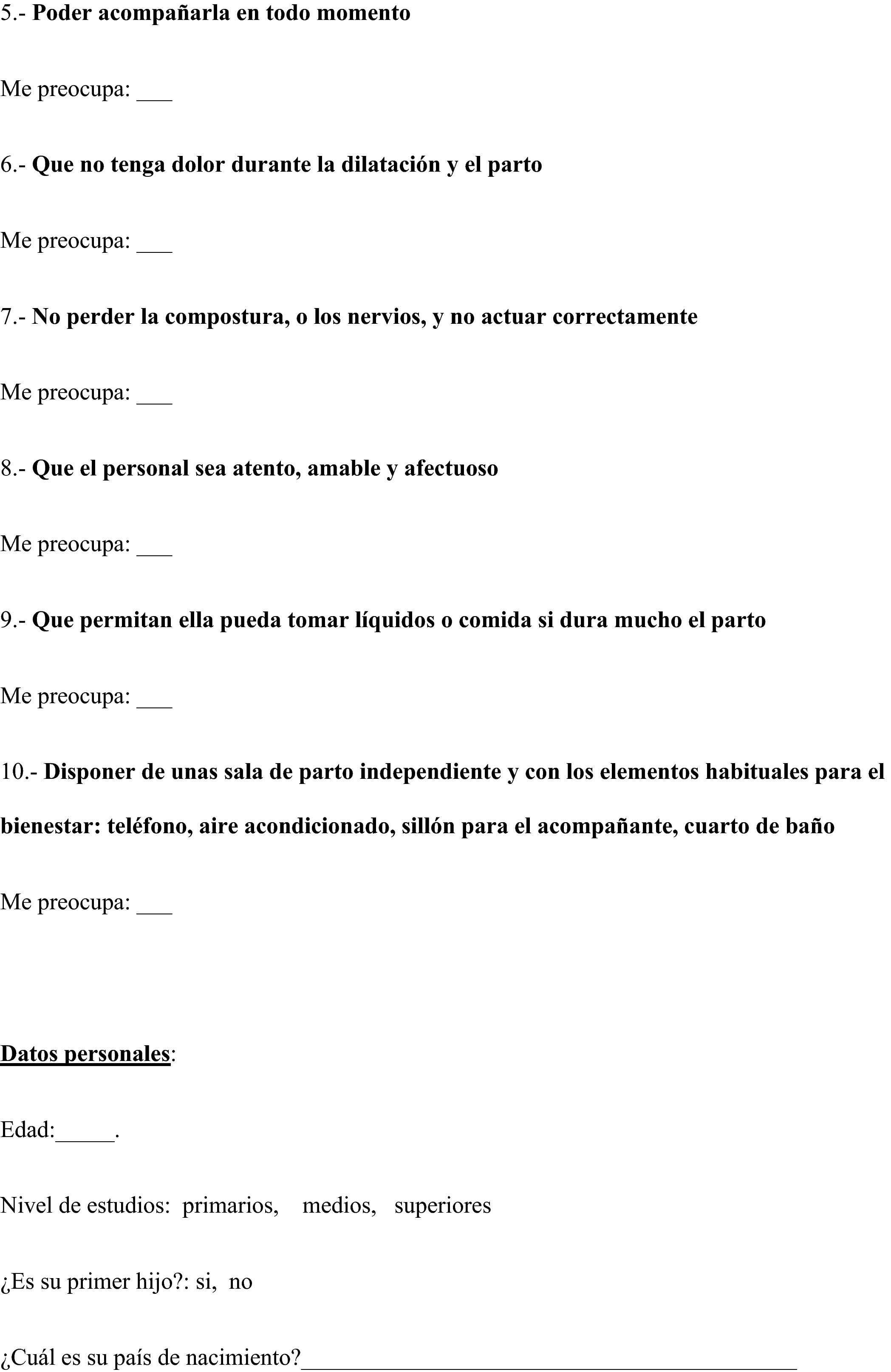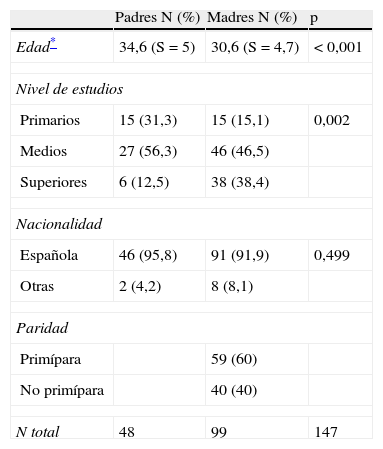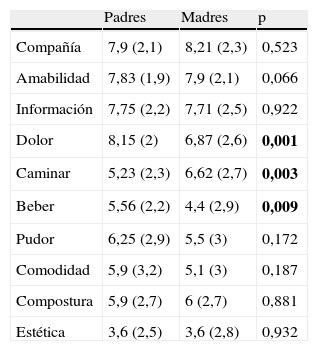Evaluar la preocupación por el dolor de los futuros padres frente a otras variables que pueden afectar al bienestar de sus mujeres durante el parto, y estudiar posibles diferencias de opinión entre padres y madres al respecto.
Pacientes y métodosEstudio transversal descriptivo realizado mediante encuesta anónima y voluntaria a padres y madres en el último mes de gestación de estas. Se solicitaba de ambos por separado, que puntuaran de 0 a 10 las variables expuestas en función del grado de preocupación que suponían para ellos, y su importancia para el bienestar durante el proceso del parto (escala 0: no preocupa y/o mínima importancia a 10: máxima preocupación y/o importancia. Los ítem sobre los que se cuestionó fueron: 1) secuelas estéticas, 2) pudor, 3) información continuada, 4) caminar, 5) beber durante la dilatación, 6) compañía, 7) dolor, 8) guardar la compostura, 9) amabilidad y 10) habitabilidad de la sala. Se registraron también edad, paridad, estudios y nacionalidad.
ResultadosSe realizaron 147 encuestas, 99 a madres y 48 a padres. El dolor es la variable que más preocupaba a los futuros padres con una media (DE) de 8,1 (2,0), mientras que para las madres tuvo mayor relevancia la información 7,7 (2,5), amabilidad 7,9 (2,1) y compañía 8,2 (2,3) durante el parto, observándose además diferencias significativas entre padres y madres para las variables: dolor (p=0,001); caminar (p=0,003) y beber (p=0,009).
ConclusionesLos resultados del estudio muestran que la preocupación por el dolor de parto es mayor en los futuros padres que en las madres, y que estas se muestran más preocupadas por la información y la compañía que por el dolor que puedan llegar a experimentar. Mejorar los aspectos asistenciales que más preocupan a ambos: información, participación paterna y analgesia debería redundar en una mayor calidad percibida por el usuario.
To evaluate the concerns of the future father about labor pain and another 9 items which could be important to the well-being of the mother during delivery. To investigate any possible differences in opinion between the future father and mother.
Patients and methodsAn anonymous and voluntary questionnaire was offered to the father and the pregnant patient during the last month of pregnancy. They had to answer the questionnaire separately, scoring 10 items in a 0-10 point ordinal scale, according to their concerns and the importance for the good development of the delivery (0= not concerned about/insignificant to 10=concerned about/great importance). The items included were: 1) esthetic aftermath, 2) embarassment, 3) continous information, 4) walking during labor, 5) drinking during labor, 6) companionship, 7) labor pain, 8) keeping composure, 9) kindness, 10) room comfortability. Data on age, education, parity and nationality were recorded.
ResultsA total of 147 questionnaires were completed, 99 by mothers, and 48 by fathers. Pain was the most important concern for the future fathers scoring a mean (SD) of 8.15 (2), while continuous information 7.71 (2.5), kindness 7.9 (2.1), and companionship 8.21 (2.3) were more important than pain for mothers. A statistically significant difference was found between fathers and mothers regarding labor pain (P=.001), walking during labor (P=.003), and drinking during labor (P=.009).
ConclusionsThe result of our study suggests that increasing the presence of the father during the delivery process, and taking care of the emotional aspects and the quality of the information given could be very important for the perception of satisfaction.
Artículo
Comprando el artículo el PDF del mismo podrá ser descargado
Precio 19,34 €
Comprar ahora








